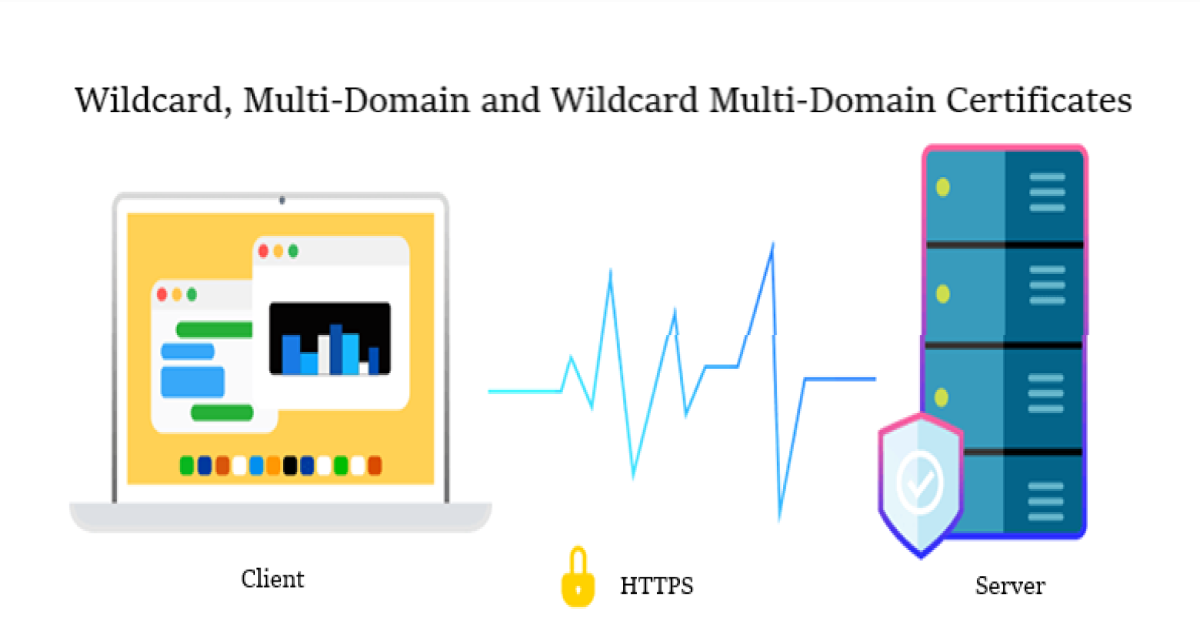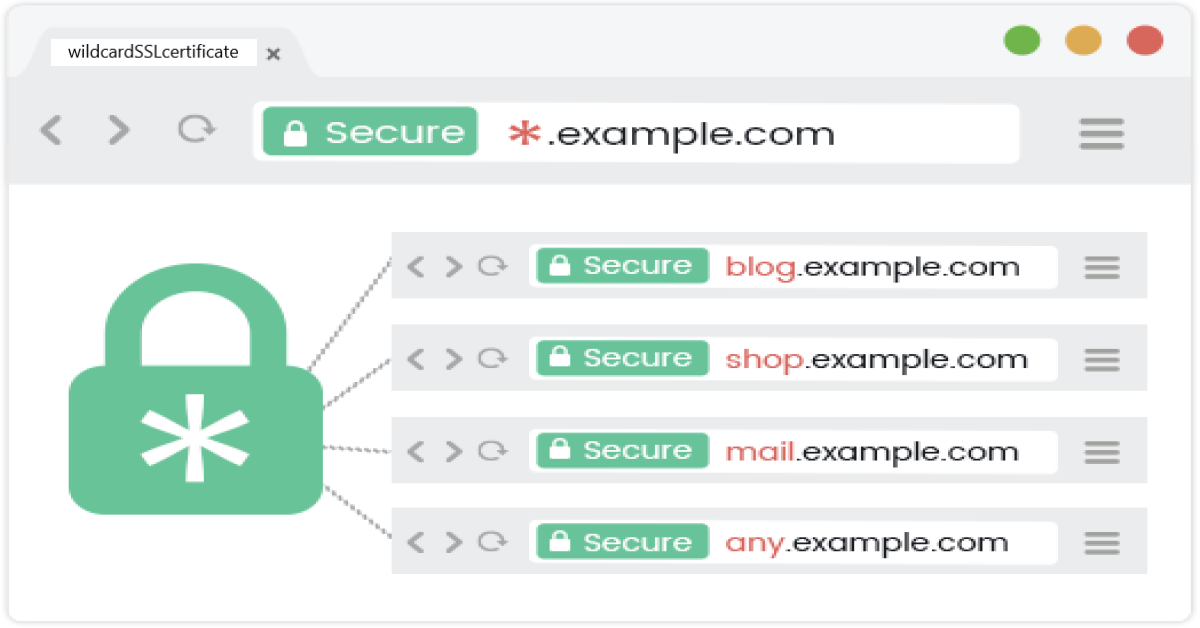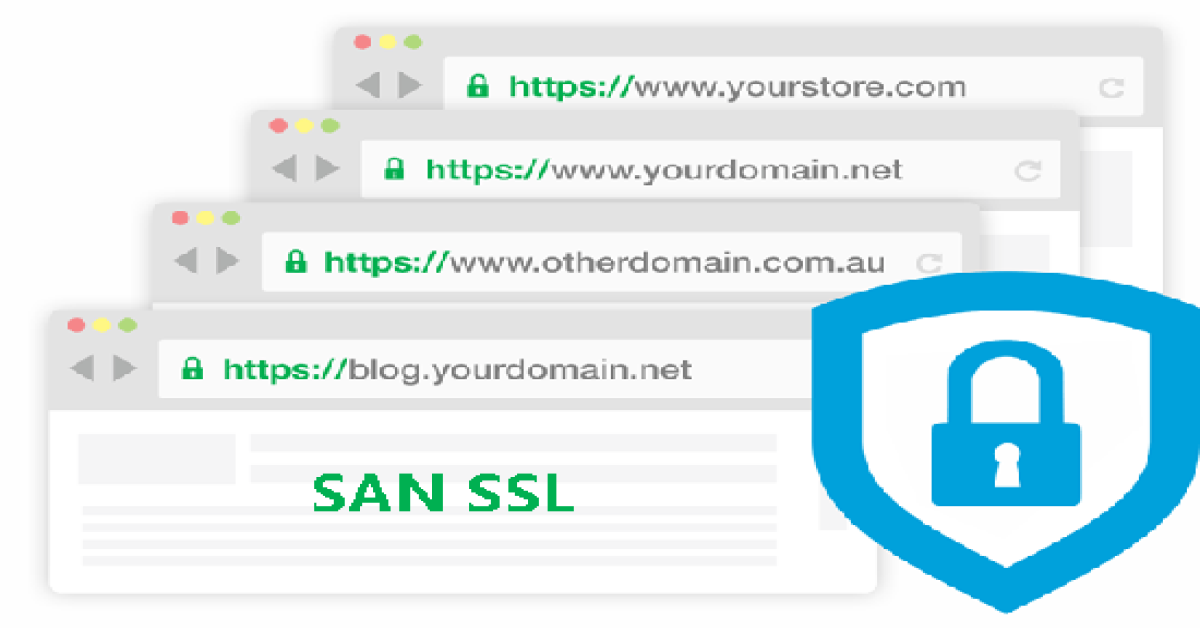SSL Certificate
Deploy an SSL certificate to enable HTTPS encryption of websites, trusted identity authentication and prevent against data leaks or tampering during transmission.
Get SSL Certificate >Blog > Wildcard Certificates, Multi-Domain Certificates and Multi-Domain Wildcard Certificates - How Much Do You Know?
Tag:
Wildcard Certificates
Multi-Domain Certificates
Multi-Domain Wildcard Certificates
3296:0
CatherineJuly 3 2023

In the ever-evolving landscape of cybersecurity, SSL/TLS certificates play a crucial role in securing online communication and establishing trust between users and websites. Among the various types of SSL certificates available, wildcard certificates, multi-domain certificates, and multi-domain wildcard certificates are widely used to protect multiple domains. So, which type of certificate does your website need? In this article, we will explore the different features and application scenarios of these three certificates so you’ll know when to use which.
A wildcard certificate can protect a main domain and all of its subdomains. It allows the addition of new subdomains without having to revalidate or paying additional fees. This certificate is denoted by an asterisk (*) in the leftmost part of the domain name, which acts as a placeholder for any subdomain.
For example, a wildcard certificate issued to "*.example.com" can secure subdomains such as blog.example.com, shop.example.com, and mail.example.com. This certificate will protect both the main domain and all subdomains at the same level.

Note: If you need to protect third-level subdomains, you need to apply for a wildcard SSL certificate for the corresponding second-level subdomain. For example, if you need to protect shop.login.example.com, billing.login.example.com, etc., you will need to apply for a wildcard certificate for *.login.example.com.
A Multi-Domain Certificate, also known as a Subject Alternative Name (SAN) Certificate, allows secure communication for multiple domains within a single certificate. It supports multiple unrelated domains, which can be either main domains or subdomains. Typically, a multi-domain certificate includes support for 2-3 domains by default, with the ability to protect up to 250 domains. This enables secure access to different websites using a single certificate.

From this, it is evident that a multi-domain certificate is suitable for businesses or organizations with multiple websites or online services, or for collaborative environments with multiple websites operated by different entities but requiring unified security. If there is a need to protect additional domains in the future, you can add them for a fee.
As the name suggests, a multi-domain wildcard certificate combines the features of both wildcard and multi-domain certificates. It allows the secure communication of multiple domains and their subdomains within a single certificate. This type of certificate offers the highest level of flexibility and convenience by supporting both wildcard functionality and the inclusion of multiple domain names.
Therefore, if an organization has multiple individual domains and different levels of subdomains, it is recommended to prioritize the use of a multi-domain wildcard SSL certificate. It is worth noting that the multi-domain wildcard certificates of different brands have slightly different limits on the number of supported domains, so you can choose according to your specific needs.
The above-mentioned wildcard certificates, multi-domain certificates, and multi-domain wildcard certificates not only save time and money but also simplify the management of certificates. Deploying a single certificate across multiple domains or subdomains enables the same encrypted communication between the browser and server, and enhances SEO rankings.
In summary, wildcard certificates, multi-domain certificates, and multi-domain wildcard certificates offer varying levels of flexibility and convenience in securing main domains and subdomains. Understanding their differences and choosing the right certificate type based on your specific requirements is crucial to ensuring robust security and streamlined certificate management. Whether you need to secure multiple subdomains, multiple domains, or a combination of both, there is a certificate solution available to meet your needs. By selecting the right certificate type, you can enhance the security of your online presence, establish trust with your users, and simplify the management of your digital certificates.
NicSRS is a leading provider of digital certificate solutions, offering a wide range of certificates to meet diverse security needs. If you have any questions, please feel free to contact us and we will provide you with professional assistance.
RELATED
2026-01-28 17:44:18
2026-01-28 11:58:43
2025-12-18 15:37:42
2025-12-17 18:03:54
2025-12-04 11:44:39
Categories

Free SSL Tools
Top Posts
Comments